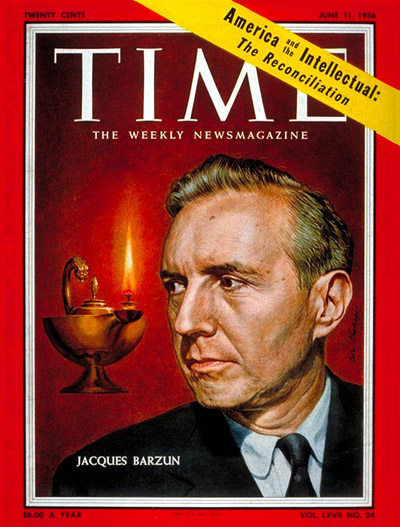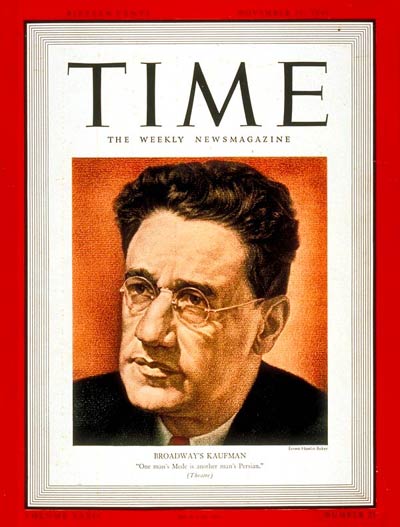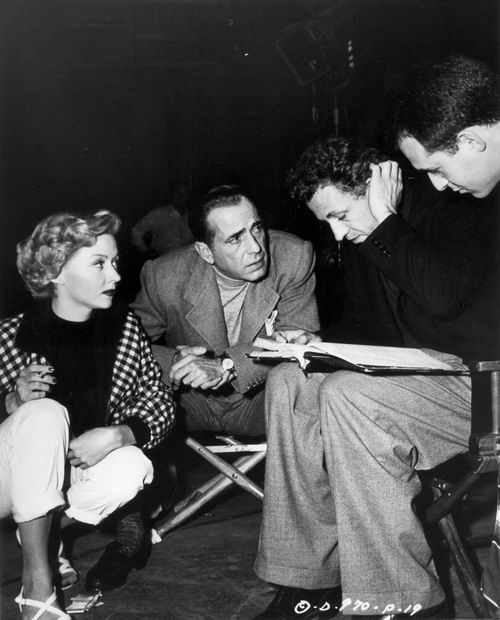In today’s Wall Street Journal “Sightings” column, I consider what happens when modern-minded directors go too far in tampering with the shows they stage. Here’s an excerpt.
* * *
Simon Stone, the resident director of Belvoir St. Theatre, an Australian company, jumped head first into a pail of boiling oil when he took it upon himself to rewrite “Death of a Salesman.” Not only did he cut the play’s epilogue, but he altered the manner in which Willy Loman, Arthur Miller’s protagonist, meets his death. In the original play, Willy dies in a car crash that may or may not have been intentional; in Mr. Stone’s staging, he commits suicide by gassing himself. On top of that, Belvoir neglected to inform ICM Partners, the agency that represents Mr. Miller’s estate and licenses his plays for production throughout the world, that Mr. Stone was altering the script.
Whoops!
No sooner did ICM get wind of the changes than Belvoir was informed that if the company didn’t perform “Death of a Salesman” in its entirety–complete with epilogue–the production would be shut down….
Theater is about what works onstage, and not having seen Belvoir’s production, I can’t tell you whether it works better to drop the curtain after Willy takes the gaspipe. What I do know is that there’s nothing even slightly surprising about ICM’s absolute refusal to let Mr. Stone scrap the final scene of “Death of a Salesman.” Few playwrights take kindly to such directorial monkeyshines….
It is, of course, perfectly commonplace for directors to “rewrite” Shakespeare, both by cutting his plays (many of which are, like “Hamlet,” too long to be comfortably performed in their entirety) and by updating their settings, at times almost beyond recognition. The same is true in the world of opera. When Francesca Zambello staged “Billy Budd,” Benjamin Britten’s operatic version of Herman Melville’s novel about life aboard the battleship H.M.S. Indomitable, for Houston Grand Opera in 1998, she described the production to me in four crisp words: “No boat, no uniforms.” It worked, too!
Such productions, when done well, can offer fresh and illuminating perspectives on over-familiar masterpieces–so long as their creators believe in the underlying validity of the original text. But whenever you deviate from that text, you run the risk of twisting, even perverting its meaning….
At the same time, I also think that Messrs. Albee, Beckett and Miller would be better served if they and their posthumous representatives would lighten up and let directors, Mr. Stone included, do their damnedest. No, I don’t want to see “Willy Loman, Killer of Zombies” on Broadway any time this millennium, but I do believe that great works of art can profit from radical reinterpretations that fling conventional wisdom out the window….
* * *
Read the whole thing here.
An Australian TV report about Belvoir’s revival of Death of a Salesman:
Archives for 2012
TT: Jacques Barzun, R.I.P.
 Jacques Barzun, author of Berlioz and the Romantic Century, The House of Intellect, From Dawn to Decadence, and many other books, died yesterday at the august age of 104. Edward Rothstein’s superb New York Times obituary is here.
Jacques Barzun, author of Berlioz and the Romantic Century, The House of Intellect, From Dawn to Decadence, and many other books, died yesterday at the august age of 104. Edward Rothstein’s superb New York Times obituary is here.
In memory of Barzun and his work, here’s a 2007 performance by Esa-Pekka Salonen and the BBC Symphony of the love scene from Berlioz’ Roméo et Juliette, one of the supreme masterpieces of Western art. Barzun, one of the composer’s foremost champions, did much to make it more widely known in the English-speaking world:
TT: Almanac
“Everything comes if a man will only wait.”
Benjamin Disraeli, Tancred
TT: So you want to see a show?
Here’s my list of recommended Broadway, off-Broadway, and out-of-town shows, updated weekly. In all cases, I gave these shows favorable reviews (if sometimes qualifiedly so) in The Wall Street Journal when they opened. For more information, click on the title.
BROADWAY:
• Bring It On (musical, G, closes Dec. 30, reviewed here)
• Evita (musical, PG-13, most performances sold out last week, reviewed here)
• Once (musical, G/PG-13, all performances sold out last week, reviewed here)
• Who’s Afraid of Virginia Woolf? (drama, PG-13/R, reviewed here)
OFF BROADWAY:
• Avenue Q (musical, R, adult subject matter and one show-stopping scene of puppet-on-puppet sex, reviewed here)
• The Fantasticks (musical, G, suitable for children capable of enjoying a love story, reviewed here)
• Tribes (drama, PG-13, closes Jan. 6, reviewed here)
CLOSING THIS WEEKEND IN NIAGARA-ON-THE-LAKE, ONTARIO:
• Misalliance (serious comedy, G/PG-13, far too talky for children, closes Saturday, reviewed here)
• Present Laughter (comedy, PG-13, closes Sunday, reviewed here)
CLOSING SATURDAY OFF BROADWAY:
• Marry Me a Little (musical, PG-13, reviewed here)
TT: Almanac
“We do not rest satisfied with the present. We anticipate the future as too slow in coming, as if in order to hasten its course; or we recall the past, to stop its too rapid flight.”
Blaise Pascal, Pensées
TT: Snapshot
Buster Keaton appears as the mystery guest on What’s My Line?:
here
TT: Almanac
“What we anticipate seldom occurs; what we least expected generally happens.”
Benjamin Disraeli, Henrietta Temple
TT: Reading matter
Now that I’m no longer shuttling between New York and New Haven for rehearsals of Satchmo at the Waldorf, I’ve got time to troll through cyberspace for interesting goodies. Here’s some of what I’ve found there:
 • Courtesy of the Library of America, here’s a 1939 article from Theatre Arts in which Morton Eustis describes what it was like to watch George S. Kaufman, who directed the first productions of most of his own plays, stage the Broadway premiere of The Man Who Came to Dinner.
• Courtesy of the Library of America, here’s a 1939 article from Theatre Arts in which Morton Eustis describes what it was like to watch George S. Kaufman, who directed the first productions of most of his own plays, stage the Broadway premiere of The Man Who Came to Dinner.
• From The Wall Street Journal, Paul Johnson supplies a list of his five favorite short biographies.
• John O’Hara reviewed Jazzmen for The New Republic in 1939, and he managed to say some interesting things in between the self-conscious, self-serving asides that were, here as always, a feature of his non-fiction writing.
• I blush to admit that I’d never read Paul Schrader’s Notes on Film Noir. Now I have.
 • Speaking of film noir, my friend Sarah Weinman is very smart about Dorothy B. Hughes, who (among other things) wrote the novel on which Nicholas Ray’s film In a Lonely Place was based.
• Speaking of film noir, my friend Sarah Weinman is very smart about Dorothy B. Hughes, who (among other things) wrote the novel on which Nicholas Ray’s film In a Lonely Place was based.
• Alec Wilkinson interviewed Neil Young for The New Yorker and was startled to discover that he doesn’t read books–and is proud not to do so.
Finally:
• Ian Fleming, the creator of James Bond, explains how to write a thriller. His apologia is unintentionally funny, but interesting withal.
